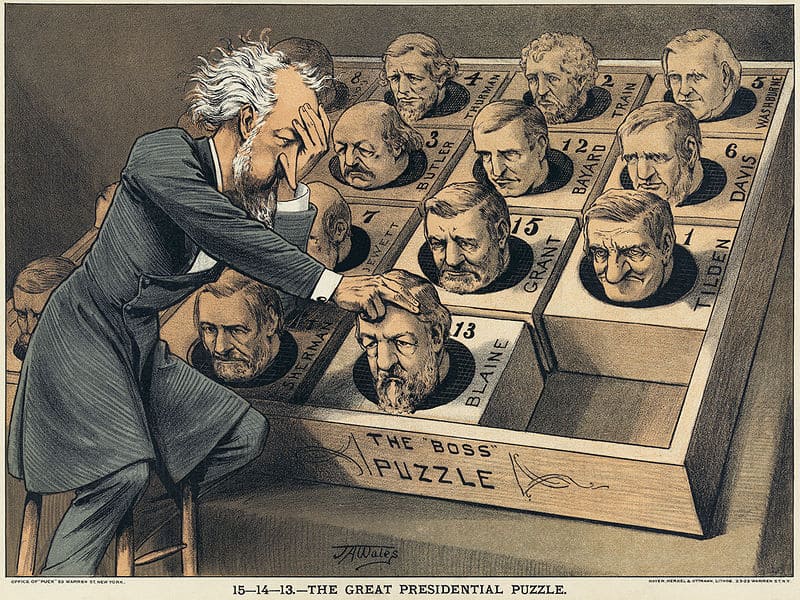
18. Voter suppression in the Jim Crow South
The election of 1876 ushered in the era of Jim Crow in the states of the former Confederacy. The principle of “separate but equal” took hold in the South, was initially upheld in the courts, and Southern Democrats installed a grip on elected power in the region which lasted for ninety years. Democrat-controlled legislatures and statehouses passed laws which severely restricted voting rights. In Louisiana by the end of the century, less than one-half of one percent of black adults in the state were allowed to vote, due to poll taxes, literacy tests, and other devices which disenfranchised them.
The poll taxes restricted the right to vote among poor whites as well. Attempts to remove the restrictions through action at the federal level in the halls of congress were blocked by the solid Democratic voting group from across the south. In some southern states, the Jim Crow laws were grandfathered, meaning that some who had voted during Reconstruction lost the right to vote they had previously exercised (though by no means all, in some states they were allowed to vote). The laws remained in effect through the early 1960s and were finally overturned through the Civil Rights Act of 1965, pushed through Congress by President Johnson.

